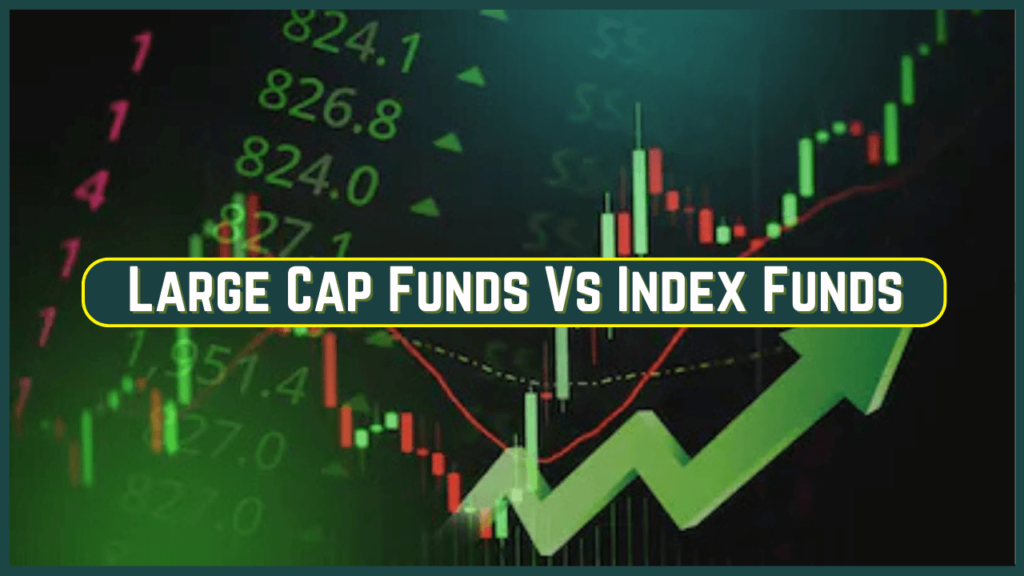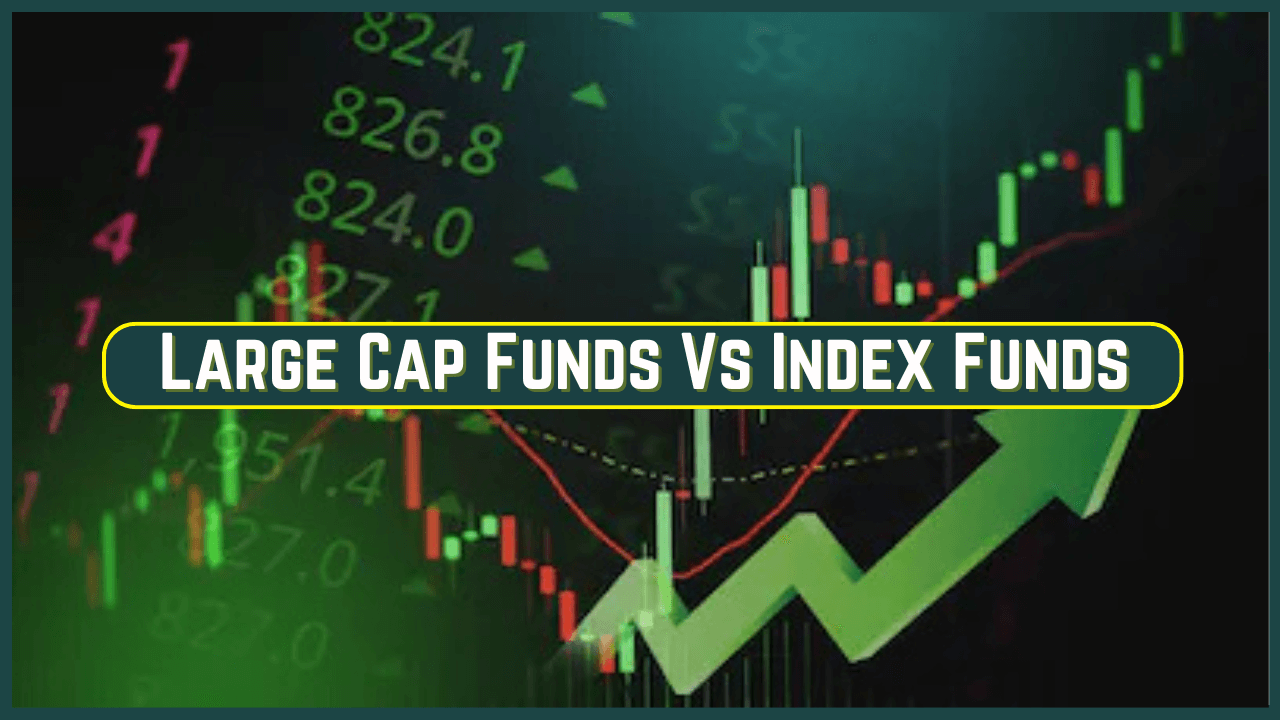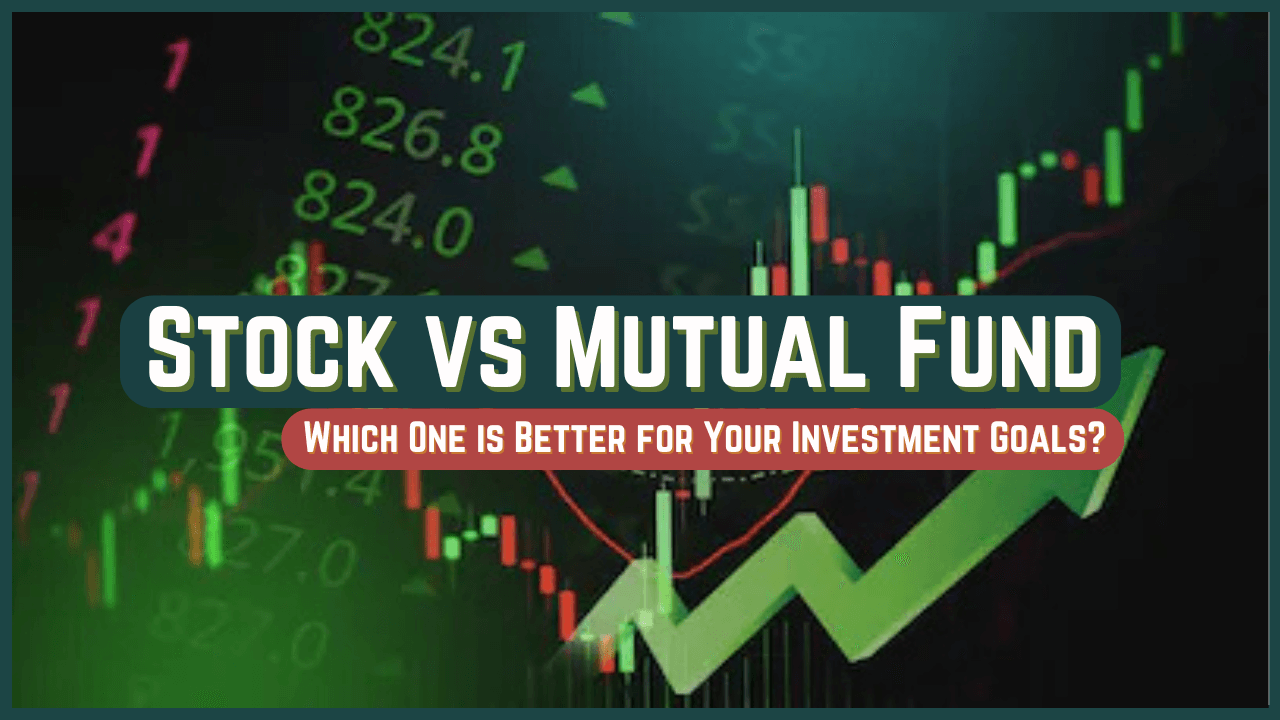When investing in mutual funds, there are so many choices that it becomes confusing. The most popular are large-cap and index funds, which appeal to investors looking for stability and long-term growth. Though they seem similar at first glance, some differences make each suitable for different types of investors.
In this blog, we will dive deep into the features, benefits, and risks of large cap funds and index funds to help you decide which one is better suited to your financial goals.

What Are Large Cap Funds?
Large cap funds are a class of actively managed mutual funds, mainly investing in large-cap companies—the top 100 by market capitalization. Large-cap companies are well-established and financially sound. They tend to be the leading companies in an industry.
Features of Large Cap Funds
- Active Management: Fund managers use their expertise to select the best-performing large-cap stocks.
- Portfolio Composition: Primarily consists of shares from companies like Reliance Industries, Infosys, and HDFC Bank.
- Risk-Reward Balance: Offers moderate risk and relatively steady returns.
Pros of Large Cap Funds
- Stability: Investments in blue-chip companies provide consistency.
- Professional Management: Experienced fund managers actively optimize the portfolio.
- Diversification: Exposure to multiple sectors reduces risk.
Cons of Large Cap Funds
- Higher Expense Ratio: Active management leads to higher fees.
- Market Dependency: Performance depends on the fund manager’s ability to pick winning stocks.
- Potential Underperformance: In some cases, active funds may fail to beat their benchmarks.
What Are Index Funds?
An index fund is a type of passive mutual fund, which looks to replicate the performance of an exact stock market index, be it Nifty 50 or Sensex. In place of picking stocks and managing them like active managers do, an index fund follows the composition of the chosen index.
Features of Index Funds
- Passive Management: No active stock picking; the fund mirrors the index.
- Lower Costs: Minimal management fees due to the lack of active involvement.
- Market Representation: Provides exposure to the overall market.
Pros of Index Funds
- Cost-Effective: Lower expense ratios compared to actively managed funds.
- Transparency: Easy to understand as they track an established index.
- Performance Consistency: Matches the returns of the benchmark index.
Cons of Index Funds
- Limited Upside Potential: Cannot outperform the market since they only track it.
- No Flexibility: The fund cannot deviate from the index even if certain stocks underperform.
- Market Risk: Prone to broader market downturns since they mirror the index.
Key Differences Between Large Cap Funds and Index Funds
| Feature | Large Cap Funds | Index Funds |
|---|---|---|
| Management Style | Active | Passive |
| Expense Ratio | Higher | Lower |
| Returns | Potential to outperform the market | Matches the index returns |
| Risk Level | Moderate | Moderate to high (based on index) |
| Flexibility | Fund manager discretion | No deviation from the index |
| Costs | Higher fees due to active management | Cost-effective due to passive tracking |
| Market Exposure | Focuses on top-performing large-cap stocks | Tracks the entire index |
Which Is Better: Large Cap Funds or Index Funds?
The choice between large-cap funds and index funds depends on your financial goals, risk appetite, and investment strategy. Let’s see the scenarios where each can be the better option.
When to Choose Large Cap Funds
- You Prefer Active Management
You believe in the abilities of the people who manage the fund to help them go well beyond market performance. In this case, large cap funds are ideal. - You Seek Stability with Growth Potential
Large cap funds invest in financially stable companies, making them suitable for conservative investors looking for consistent growth. - You’re Comfortable with Higher Fees
The higher expense ratio of large cap funds is justified if the fund consistently delivers superior returns compared to its benchmark.
When to Choose Index Funds
- You Want a Low-Cost Option
Index funds are perfect for cost-conscious investors, as their expense ratios are significantly lower than actively managed funds. - You Prefer Market-Wide Exposure
Index funds provide broad market exposure, making them suitable for investors who want to mirror overall market performance. - You Believe in Efficient Markets
If you think that markets are efficient and beating the benchmark consistently is unlikely, index funds are the better choice.
Performance Comparison
While both large cap funds and index funds are designed for long-term investment, their performance can vary significantly depending on market conditions and management.
1. Historical Returns
- Large cap funds have historically delivered returns of 10%-15% annually, depending on the fund manager’s skill and market conditions.
- Index funds typically mirror the index, offering returns of around 8%-12%, depending on the benchmark.
2. Volatility
- Large cap funds may experience less volatility due to active management.
- Index funds can be more volatile as they lack active adjustments to changing market conditions.
Tax Implications
1. Similar Taxation
Both large cap funds and index funds are treated as equity funds in India, with the following tax structure:
- Short-Term Capital Gains (STCG): Taxed at 15% for holdings under 1 year.
- Long-Term Capital Gains (LTCG): Gains above ₹1 lakh are taxed at 10% for holdings over 1 year.
2. Expense Ratio Impact
The lower expense ratio of index funds may slightly improve post-tax returns compared to large cap funds.
Combining Large Cap and Index Funds
Why one when you can have both? A balanced portfolio often consists of a mix of large cap and index funds that leverage the strength of each.
Advantages of Combining Both
- Diversification: Spread the risk by including actively managed funds and passive funds.
- Cost Management: Lower your overall costs with high-expense large cap funds balanced with low-cost index funds.
- Optimized Returns: Get the potential outperformance of large cap funds, while still maintaining the consistency of index funds.
Conclusion
It makes for a really good investment product, with their own merits- large cap funds offer superior active management potential; index funds present cost-effective and market-wide exposures.
It just depends on one’s investment goal, risk capacity, and an affinity for an active or a passive approach towards management. Diversification to both fund categories can help attain the best out of both in a well-diversified portfolio.
FAQs
Are large cap funds riskier than index funds?
Not necessarily. Both have moderate risk, but index funds might be more volatile as they track the market without adjustments.
Which is better for beginners: large cap funds or index funds?
Index funds are typically better for beginners due to their simplicity and lower costs.
Can I invest in both large cap and index funds?
Yes, combining both can provide diversification and balance between active and passive management.
How do expense ratios affect returns?
Higher expense ratios reduce your net returns. Index funds have lower expense ratios, making them more cost-efficient over the long term.
Which fund type performs better during market downturns?
Large cap funds may perform better during downturns due to active management and stock selection.












